Yongli Wang
Artificial Intelligence for Emotion-Semantic Trending and People Emotion Detection During COVID-19 Social Isolation
Jan 16, 2021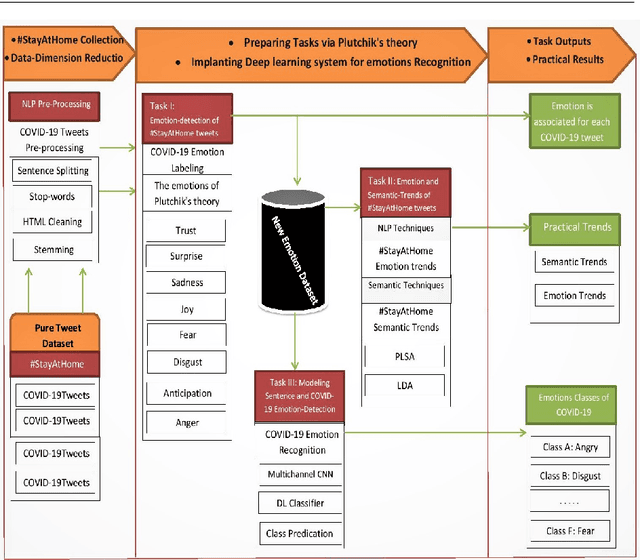

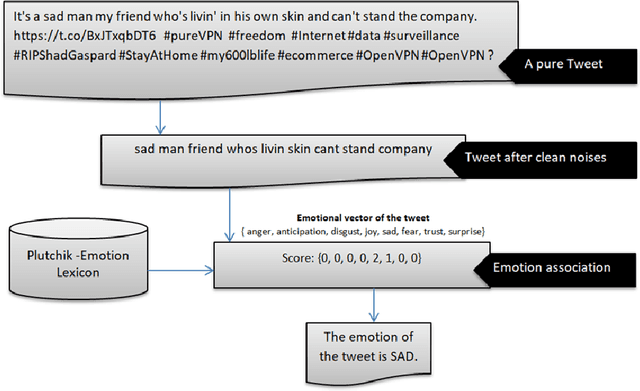

Abstract:Taking advantage of social media platforms, such as Twitter, this paper provides an effective framework for emotion detection among those who are quarantined. Early detection of emotional feelings and their trends help implement timely intervention strategies. Given the limitations of medical diagnosis of early emotional change signs during the quarantine period, artificial intelligence models provide effective mechanisms in uncovering early signs, symptoms and escalating trends. Novelty of the approach presented herein is a multitask methodological framework of text data processing, implemented as a pipeline for meaningful emotion detection and analysis, based on the Plutchik/Ekman approach to emotion detection and trend detection. We present an evaluation of the framework and a pilot system. Results of confirm the effectiveness of the proposed framework for topic trends and emotion detection of COVID-19 tweets. Our findings revealed Stay-At-Home restrictions result in people expressing on twitter both negative and positive emotional semantics. Semantic trends of safety issues related to staying at home rapidly decreased within the 28 days and also negative feelings related to friends dying and quarantined life increased in some days. These findings have potential to impact public health policy decisions through monitoring trends of emotional feelings of those who are quarantined. The framework presented here has potential to assist in such monitoring by using as an online emotion detection tool kit.
Deep Sentiment Classification and Topic Discovery on Novel Coronavirus or COVID-19 Online Discussions: NLP Using LSTM Recurrent Neural Network Approach
Apr 24, 2020



Abstract:Internet forums and public social media, such as online healthcare forums, provide a convenient channel for users (people/patients) concerned about health issues to discuss and share information with each other. In late December 2019, an outbreak of a novel coronavirus (infection from which results in the disease named COVID-19) was reported, and, due to the rapid spread of the virus in other parts of the world, the World Health Organization declared a state of emergency. In this paper, we used automated extraction of COVID-19 related discussions from social media and a natural language process (NLP) method based on topic modeling to uncover various issues related to COVID-19 from public opinions. Moreover, we also investigate how to use LSTM recurrent neural network for sentiment classification of COVID-19 comments. Our findings shed light on the importance of using public opinions and suitable computational techniques to understand issues surrounding COVID-19 and to guide related decision-making.
Natural Language Processing via LDA Topic Model in Recommendation Systems
Sep 20, 2019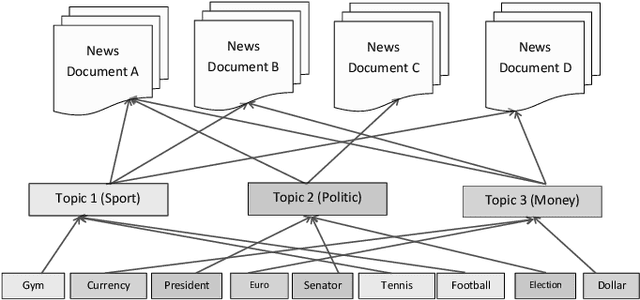
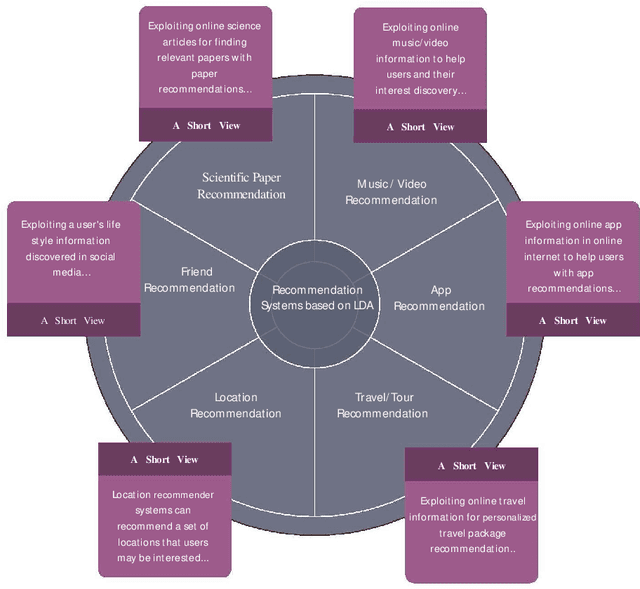
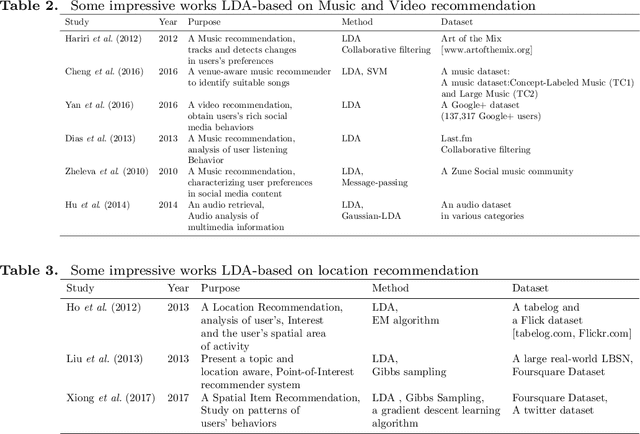
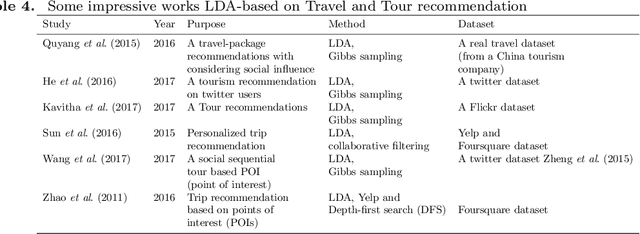
Abstract:Today, Internet is one of the widest available media worldwide. Recommendation systems are increasingly being used in various applications such as movie recommendation, mobile recommendation, article recommendation and etc. Collaborative Filtering (CF) and Content-Based (CB) are Well-known techniques for building recommendation systems. Topic modeling based on LDA, is a powerful technique for semantic mining and perform topic extraction. In the past few years, many articles have been published based on LDA technique for building recommendation systems. In this paper, we present taxonomy of recommendation systems and applications based on LDA. In addition, we utilize LDA and Gibbs sampling algorithms to evaluate ISWC and WWW conference publications in computer science. Our study suggest that the recommendation systems based on LDA could be effective in building smart recommendation system in online communities.
Recommendation System based on Semantic Scholar Mining and Topic modeling: A behavioral analysis of researchers from six conferences
Dec 20, 2018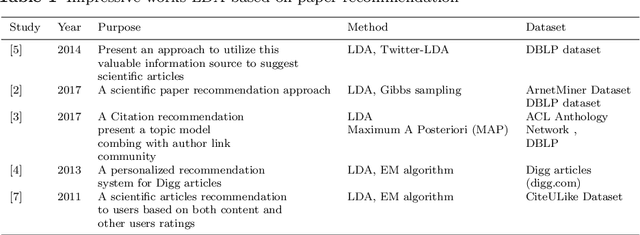
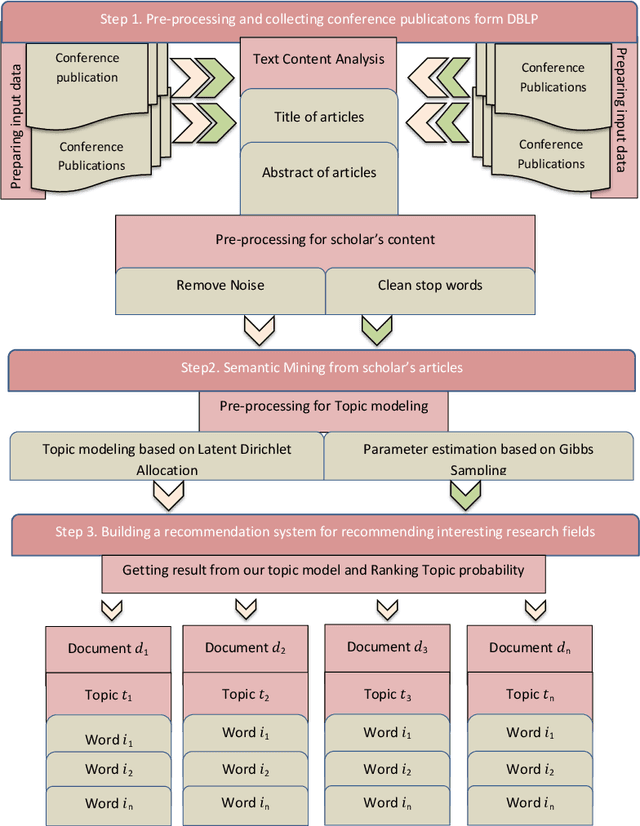

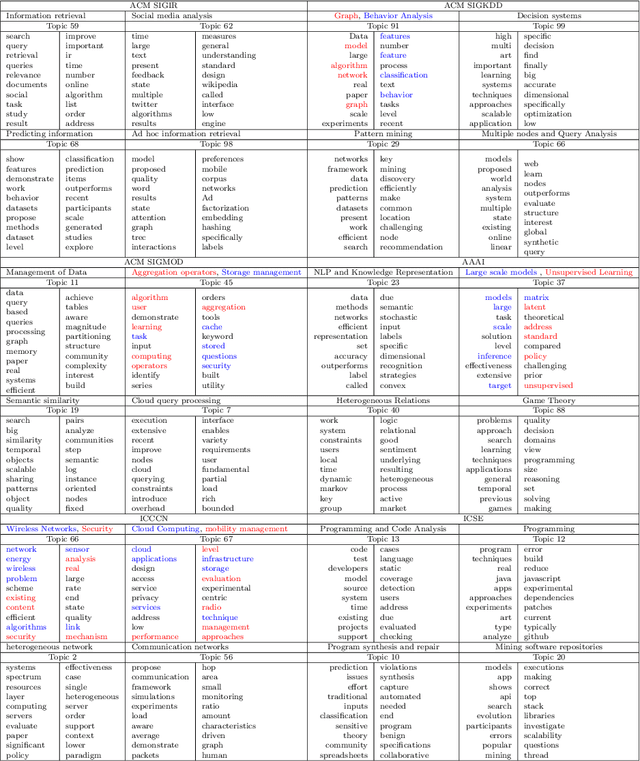
Abstract:Recommendation systems have an important place to help online users in the internet society. Recommendation Systems in computer science are of very practical use these days in various aspects of the Internet portals, such as social networks, and library websites. There are several approaches to implement recommendation systems, Latent Dirichlet Allocation (LDA) is one the popular techniques in Topic Modeling. Recently, researchers have proposed many approaches based on Recommendation Systems and LDA. According to importance of the subject, in this paper we discover the trends of the topics and find relationship between LDA topics and Scholar-Context-documents. In fact, We apply probabilistic topic modeling based on Gibbs sampling algorithms for a semantic mining from six conference publications in computer science from DBLP dataset. According to our experimental results, our semantic framework can be effective to help organizations to better organize these conferences and cover future research topics.
 Add to Chrome
Add to Chrome Add to Firefox
Add to Firefox Add to Edge
Add to Edge